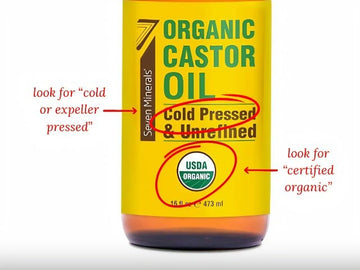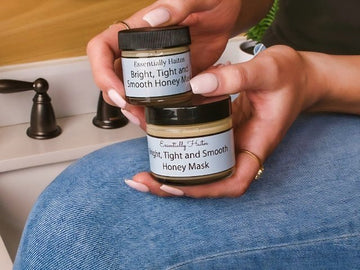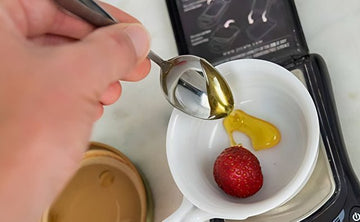May 20 is World Bee Day - Save the Bees!
Why Is There Such a Thing as World Bee Day?
Well, who knows today is World Bee Day? I, sadly, did not! Considering most of Essentially Haitos' products include local raw honey, I should pay more attention to bees!
I was alerted to World Bee Day by Twitter - more specifically by Penn State's Twitter account. I read the entire article (referenced below if you are interested in reading the whole thing - it really is quite interesting given it is about bee research).
I'll do my best to hit the main points, what I think is truly interesting, and what we can do to help and protect the all important bee.
In the US alone, beekeepers have lost about 30% of their colonies every year since 2006. Many populations of wild bees are also showing declines, with many species now threatened or endangered.
Within the past decade, beekeepers across the globe have observed massive declines in managed honey bee populations. Similar declines have been observed in populations of wild bees and other pollinators.
According to researchers, honey bee populations in the United States and Europe have suffered large losses. Exposure to parasites and pesticides, climate change, a loss of the natural abundance of flora due to increased land-use, and habitat destruction are a few of the causes researchers associate with honey bee population decline.
What Does This Mean for Us?
Nearly 75% of major food crops - fruits, vegetables and nuts - depend on honey bees and other pollinators (ex. butterflies). This equals about one in every three bites of food we eat. In PA alone (where we live), these crops contribute $260 million to the economy annually.
"It is important to know that 90% of flowering plants use pollinators to set seed and produce fruit, which then supports other wildlife. Pollinators are vital for healthy ecosystems. By taking steps to help bees, we are also helping ourselves in the end." ~Christina Grozinger, PSU, Distinguished Professor of Entomology
How We Can Help
- Beescape.org is a site designed to allow individuals to assess the quality of their property and/or landscapes for supporting bee populations. This also helps the Center for Pollinator Research at PSU. Check it out! I will as soon as I finish writing this post!
- If you are really interested in learning about bees, PSU has a Beekeeping 101 online course for anyone who wants to learn more about beekeeping. No experience required (although I think that is probably a given).
- And if you are a teacher, which I used to be, the PSU Center for Science and the Schools created a week-long workshop to provide middle and high school teachers with resources to teach about pollinators in their classrooms.
- Finally, I recommend NOT killing the bees buzzing around your backyards this summer!
Read the full article at https://impact.psu.edu








What an amazing and enjoyable informative read, your contribution is appreciable. Keep up the good work!
Bee Embroidery Design